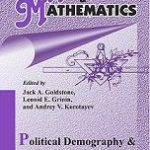C.J. Polychroniou: Noam, more than two decades after the “end [of] welfare as we know it,” Democrats have the chance to reshape the country’s safety net and close the gap with the U.S.’s liberal-democratic peers on social protection programs, as well as fight the climate crisis. However, in perhaps a rather unsurprising development, it looks like the obstructionist elements inside the Democratic Party will make sure that the U.S. remains a noticeable outlier among developed countries by not having a major social welfare state. Indeed, Joe Manchin, one of the Democratic senators standing in the way of the passage of the reconciliation bill, said that the U.S. should not turn into an “entitlement society.” How do you assess all the drama in Congress around the $3.5 trillion in infrastructure, social programs and combatting the climate crisis, and what does this whole experience reveal to us about the state of U.S. politics in the post-Trump era?
Noam Chomsky: It’s not post-Trump, unfortunately. Former President Donald Trump’s heavy hand has not been lifted. He owns the increasingly radicalized voting base of the Republican Party. The leadership slinks to his Mar-a-Lago palace to plead for his blessing, and the few who dare to raise their heads have them lopped off quickly.
The right-wing Democrats (mislabeled “moderate”) follow along for their own reasons. These are not hard to discern in some cases: It’s not a great surprise that a coal baron who is Congress’s leading recipient of fossil fuel funding (Manchin) should proclaim the fossil fuel industry’s “no elimination” slogan, or that a top recipient of donations from the pharmaceutical industry (Sen. Kyrsten Sinema) should be holding back badly need drug pricing reforms. That’s normal in a political system mired in corruption.
But the rot runs deeper.
It’s often been observed that the U.S. has a one-party political system — the business party — with two factions, Democrats and Republicans. In the past, the Republican faction has tended to be more dedicated to the concerns of extreme wealth and the corporate sector, but with the resurgence of the one-sided class war called “neoliberalism” under President Ronald Reagan, the leadership has been going off the rails. By now they barely resemble a political party in a functioning democracy.
Since the late President Jimmy Carter years, the Democrats have not lagged far behind, becoming a party of affluent professionals and Wall Street donors with the working class handed over to their bitter class enemy.
One of Trump’s occasional true statements was that Republicans could never win a fair election on their actual programs. Recognizing this, since President Richard Nixon’s Southern strategy, the party has been mobilizing voters on “cultural issues” — white supremacy, abortion, guns, traditional patriarchal families, God (favoring the evangelical Christian variety)… anything that doesn’t lift the veil on their loyal service to their prime constituency. That way they can at least stay in the running, exploiting the deeply undemocratic features of the electoral system with its built-in advantages for their largely rural voting base.
All this and much more has been extensively discussed elsewhere. We need not elaborate here. It’s playing out in the halls of Congress right now. The extent to which the U.S. is an “outlier” glares at us wherever we look, sometimes in ways that verge on obscenity. Take paid maternity leave. In the U.S.: none. In the next largest country in the hemisphere, Brazil: about four months. That’s in addition to the universal health care, free higher education, and other public benefits that are found almost everywhere.
To be fair, the richest country in the world, with unparalleled advantages, is not alone in denying paid leave to new mothers. (Fathers? Forget about it.) The U.S. is joined by the Marshall Islands, the Federated States of Micronesia, Nauru, Palau, Papua New Guinea and Tonga.
Recently a lead columnist for the London Financial Times quipped that if Sen. Bernie Sanders was in Germany, he could be running on the right-wing Christian Democrat ticket. Not just a witticism, and not a comment on Sanders. Rather, on the socioeconomic system that has been created in the one-party state, dramatically so in the era of vicious class war since Reagan.
It was not always thus. In the 1930s, while continental Europe succumbed to fascism, the U.S. forged a path toward social democracy on a wave of militant labor activism, lively and diverse politics, and a sympathetic administration. Years earlier, the U.S. had pioneered mass public education, a major contribution to democracy and social justice; Europe lagged far behind.
It’s beyond irony that now Europe is upholding a tattered social democracy while the U.S. declines to Trump-led proto-fascism, or that under Trump, the secretary of education sought to dismantle public education, carrying forward the neoliberal principles that underlie the sharp defunding of public education aimed at its elimination. All this is rooted in the “libertarian” doctrines of Milton Friedman, James Buchanan and other leading figures of the movement, closely linked from its origins to the attack against government “overreach” by desegregating schools.
It’s worth recalling that these doctrines had their origin in bitter class war in interwar Austria, as we’ve discussed before. They are well-suited for its resumption in the neoliberal era.
The Biden effort to move the U.S. somewhat toward the humane norms of other OECD countries is still not dead, but it has been virtually neutralized in Congress. The Republican organization is rock-solid opposed. Its red lines include preservation in full of their one legislative achievement under Trump, “the U.S. Donor Relief Act of 2017,” as Joseph Stiglitz termed the wholesale robbery, which punched a huge hole in the deficit (for a “good” cause, so OK). By charming coincidence this near-$2 trillion gift to the very rich and the corporate sector is about the same as the measly remnants of the Biden reconciliation bill (spread over 10 years) that have barely survived the right-wing assault.
This time the “deficit threat” is definitely not OK, as is loudly proclaimed. Not a good cause this time. Wrong recipients: the poor, workers, mothers and other “unpeople.”
Should the progressives remain opposed to the infrastructure bill if Congress refuses to pass the social safety net bill in its original version?
It’s question of tactics, not principle. That’s not to say that it’s unimportant. Choice of tactics can have very far-reaching consequences. Rather, it means that it’s not easy to answer. There are many imponderables, not least, how it will affect the coming elections. In earlier years, it was often not too important which faction of the business party took power. In recent years, it has been. Proto-fascism is on the march. Worse still, as we’ve discussed elsewhere, we’re are advancing to a precipice from which there will be no return. Four more years of Trumpism might well tip the balance.
Which answer to the question you raise will reduce the likelihood of impending disasters? I don’t see an easy answer. The question may by now be moot, with the vicious cuts in the reconciliation bill.
Won’t there be grave political consequences if Democrats blow the chance to reshape federal priorities? After all, the majority of U.S. people seem to be in support of Biden’s Build Back Better Act.
The Republicans have been pursuing a careful and well-thought-out policy of maintaining power as a minority party dedicated to great wealth and corporate power. It has been openly announced by the most malicious and politically powerful of the gang: Senate Minority Leader Mitch McConnell, repeating what worked well for his reactionary cause during the President Barack Obama years (helped by Obama’s quick betrayal of those who believed the pretty rhetoric about “hope and change”).
So far, it’s working. If it does work, with Trump and acolytes returning to power thanks to this malevolence, we will be well on our way to proto-fascism and to falling off the precipice. Failure of Biden’s efforts to reshape federal priorities will have a terrible human cost. Beyond that, it will also provide a weapon for the McConnell strategy of harming the country as much as possible and blaming the outcome on the Democrats.
Brutal, but not stupid.
Is there a way to fend off these grave political consequences? Not within the confines of the deeply corrupt and undemocratic political system. The only way that has ever worked, and can work now, is mass popular pressure — what the powerful call “the peasants coming with their pitchforks.”
Trump has been out of office for several months, yet his influence among Republican voters remains unwavering. What continues to drive the pro-Trump crowd?
We’ve often discussed it before, and there has been extensive investigation by social scientists — most convincingly, in my opinion, by Tony DiMaggio.
It’s not just Trump, though he has shown real genius in tapping poisons that run deep in U.S. history and contemporary culture, and in portraying himself as “your savior” — even “the chosen one” — while stabbing you in the back. That’s no small accomplishment for a person with few talents other than chicanery, fraud, and wielding the wrecking ball to destroy everything he can’t claim as his own.
But it’s not just Trump. We can also ask why Nixon’s racist Southern strategy succeeded, or Reagan’s quite overt racism — in his case, apparently sincerely held. We can ask why the abortion and gun frauds took hold, or why in the face of overwhelming evidence, segments of the left join the far right in anti-vax campaigns, at enormous human costs, or why “more than half of President Trump’s supporters [in 2020] embraced the QAnon conspiracy theory of a global satanic pedophile ring that was plotting against the 45th president of the United States,” who was valiantly trying to save the children from such “prominent pedophiles” as Biden, Hillary Clinton, and other “Deep State” suspects.
The signs of collapse of the social order are too numerous and familiar to review once again. To a large extent, it can be attributed to the impact of the one-sided and vicious class war of the past 40-plus years. There are deeper cultural and historical roots. It’s not just the U.S. European racism and xenophobia is even more malevolent in some respects. One sign is the corpses in the Mediterranean, victims of the frenzy of Europe’s dedication to torture the survivors of its centuries of destruction of Africa.
The effort to reveal the roots of such pathologies is no mere academic enterprise, and not just these. We can add the pathologies of the rich and powerful, including the deplorables who hurl the epithet at others. These have been far more consequential. Efforts to understand are of value primarily as a guide to self-reflection and to action to find remedies.
And quickly. Our strange species doesn’t have a lot of time to spare.
Source: https://truthout.org/articles/chomsky-build-back-better-fiasco
C.J. Polychroniou is a political scientist/political economist, author, and journalist who has taught and worked in numerous universities and research centers in Europe and the United States. Currently, his main research interests are in U.S. politics and the political economy of the United States, European economic integration, globalization, climate change and environmental economics, and the deconstruction of neoliberalism’s politico-economic project. He is a regular contributor to Truthout as well as a member of Truthout’s Public Intellectual Project. He has published scores of books and over 1,000 articles which have appeared in a variety of journals, magazines, newspapers and popular news websites. Many of his publications have been translated into a multitude of different languages, including Arabic, Chinese, Croatian, Dutch, French, German, Greek, Italian, Japanese, Portuguese, Russian, Spanish and Turkish. His latest books are Optimism Over Despair: Noam Chomsky On Capitalism, Empire, and Social Change (2017); Climate Crisis and the Global Green New Deal: The Political Economy of Saving the Planet (with Noam Chomsky and Robert Pollin as primary authors, 2020); The Precipice: Neoliberalism, the Pandemic, and the Urgent Need for Radical Change (an anthology of interviews with Noam Chomsky, 2021); and Economics and the Left: Interviews with Progressive Economists (2021).






